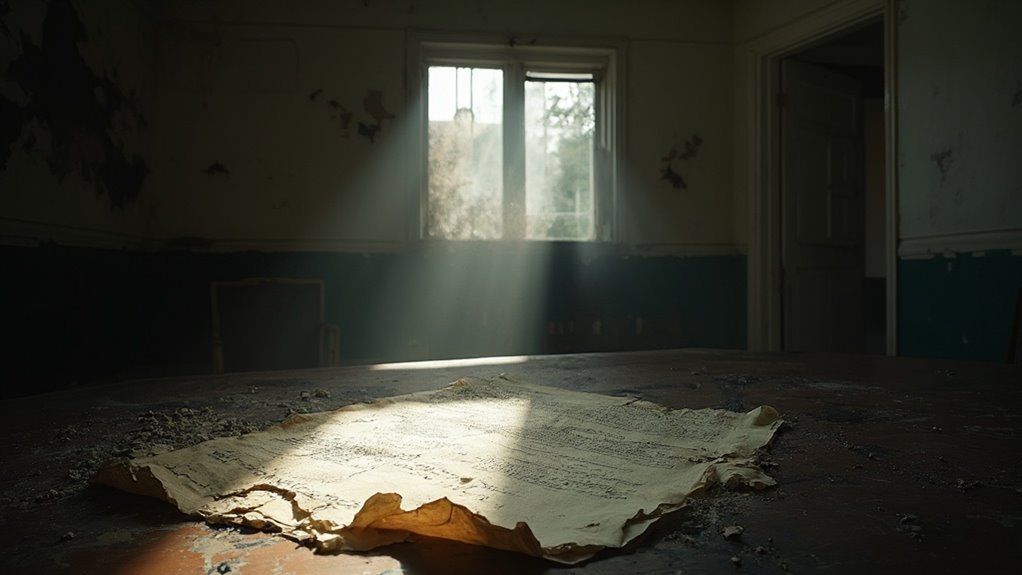Neglecting asbestos testing can lead to staggering costs and serious consequences. You risk hefty fines for non-compliance and potential lawsuits from tenants or workers facing health risks. Ignoring this testing can in addition increase your insurance premiums and lower your property's market value, making it tough to sell or rent. Furthermore, exposure to asbestos is linked to severe diseases that may take decades to appear. If you don't address it, you might find yourself facing costly removal and remediation efforts later. Understanding these risks can save you money and protect your health, so consider your next steps carefully.
Financial Risks of Ignoring Testing

Ignoring asbestos testing can lead to significant financial repercussions that you might not anticipate. Failing to conduct proper testing exposes you to hefty fines imposed by regulatory bodies. When you neglect these responsibilities, you're not just risking violations; costly lawsuits from affected workers, residents, and contractors can follow. If someone becomes ill as a result of asbestos exposure, potential legal claims for compensation could arise, further straining your finances.
Your reputation could likewise take a hit. Negative public perception and a loss of trust among buyers or tenants can diminish your property's value. Insurance liabilities add another layer of risk. You may face increased premiums or even difficulty obtaining coverage if you have a known history of asbestos issues. Additionally, disturbance of Asbestos-Containing Materials can lead to further exposure risks, amplifying the potential for legal claims. Moreover, professional abatement emphasizes the importance of managing asbestos to safeguard both human health and the environment, which can prevent costly remediation efforts.
Ignoring testing can lead to project delays and cost overruns. If workers halt operations because of non-compliance, you're looking at lost productivity and significant additional expenses for cleanup and specialist services. Ultimately, the long-term financial consequences can be severe, impacting market value and resulting in expensive remediation efforts. Don't let the lack of testing become a costly oversight; proactive measures can safeguard your financial future.
Health Consequences of Asbestos Exposure
Neglecting asbestos testing not only leads to financial liabilities but also poses serious health risks to you and those around you. Asbestos exposure can result in a range of devastating diseases, including lung cancer and mesothelioma, which often take decades to manifest. Typically, you might not see asbestos symptoms until 15 to 50 years after exposure. This long latency period means that the risk of developing these illnesses increases the longer you are exposed.
Cumulative exposure greatly heightens your chances of serious respiratory conditions, such as asbestosis, which causes severe lung scarring. Common asbestos symptoms include shortness of breath, a persistent cough, and chest pain—signs that should never be ignored. The type of asbestos and your individual genetic factors can influence your susceptibility to these diseases, especially if you have a history of smoking.
Understanding the health consequences of asbestos exposure is critical. Early detection can make a notable difference in outcomes, so taking proactive measures to test your property is not just about avoiding future costs; it's about safeguarding your health and that of your loved ones. Regular testing is essential for older buildings to ensure safety and compliance. Don't wait until it's too late—act now.
Legal Implications for Property Owners

When it comes to property ownership, understanding your legal obligations regarding asbestos is vital. Failing to manage asbestos correctly can lead to significant legal liabilities, including lawsuits from tenants or buyers if you don't disclose known asbestos presence. You must conduct asbestos surveys, manage risk, and implement remedial actions when necessary.
Here's a concise overview of your legal responsibilities:
| Legal Obligation | Description |
|---|---|
| Duty to Manage | Manage asbestos in properties built before 2000. |
| Disclosure | Inform tenants and buyers about known asbestos. |
| Risk Assessment & Action Plan | Assess risks and create a management plan if asbestos is found. |
Tenant rights are additionally a significant aspect. Tenants can demand a safe living environment and may withhold rent or terminate their lease if you fail to manage asbestos properly. Non-compliance could lead to hefty fines or even criminal charges. The regulatory framework, including the Control of Asbestos Regulations, underscores the importance of adhering to these obligations. Prioritizing these responsibilities will protect both your tenants and your investment.
Costs of Asbestos Removal
Understanding the costs associated with asbestos removal is vital for any property owner facing this hazardous material. The price of removal largely depends on the area size, type of asbestos, and location within your property. Expect to pay between $5 and $20 per square foot for indoor removal, while exterior locations, like roofing, can soar to $50 to $150 per square foot. If your entire home requires remediation, costs can exceed $5,700.
Utilizing professional services is important, as these experts employ advanced removal techniques and safety measures that protect you and your property. Attempting to remove asbestos yourself is not only dangerous but can lead to legal repercussions as well. Professional removal companies guarantee proper containment and disposal, greatly reducing health risks associated with asbestos exposure.
To control costs, consider encapsulation, which can lower expenses by up to 25%. Hiring a third-party asbestos inspector can help you avoid overcharging and confirm you're getting a fair price. Government grants and financing options may likewise be available to assist you financially. Prioritizing professional removal effectively safeguards your health and your property's integrity.
Impact on Property Value

The presence of asbestos in a property can drastically diminish its market value, creating a ripple effect that extends to negotiations and overall marketability. Buyers often perceive homes with asbestos as high-risk investments, primarily because of health concerns and the potential costs of removal. This perception can lead to lower offers or even cause buyers to walk away from deals altogether. When asbestos is found in critical areas such as insulation or roofing, the impact on value becomes even more pronounced.
Marketability takes a significant hit as potential buyers shy away from properties with any indication of asbestos. Even minor asbestos presence can trigger scrutiny during showings, making it harder to sell. Real estate agents likewise face challenges in promoting these homes, as buyer concerns about health risks and remediation costs loom large.
Furthermore, sellers are legally required to disclose known asbestos presence, and failure to do so can lead to serious legal repercussions. Conversely, removing asbestos can improve your property's value and marketability, attracting higher offers. Ultimately, addressing asbestos issues proactively not only mitigates risks but additionally positions your property favorably in a competitive market.
Frequently Asked Questions
How Can I Identify Asbestos in My Home?
Wondering if your home hides asbestos? Start with asbestos identification techniques like visual inspections for common asbestos materials, such as floor tiles and insulation, but remember, only professional testing can confirm their presence definitively.
What Are the Signs of Asbestos Exposure?
You should watch for asbestos symptoms like persistent cough, shortness of breath, and chest pain. Long-term effects include lung cancer risks and respiratory complications, making awareness crucial for your health and safety.
How Often Should I Test for Asbestos?
Think of asbestos testing as a guardian angel for your property. You should test every 6 to 12 months, especially if your building's older, to comply with asbestos regulations and guarantee safety for everyone involved.
Can I Sell a Home With Asbestos?
Yes, you can sell a home with asbestos, but be aware it may affect property value and raise buyer concerns. Transparency about the situation can build trust and potentially ease the selling process.
What Should I Do if I Find Asbestos?
If you find asbestos, don't panic. Assess its condition, avoid disturbing it, and seek professional asbestos removal. Addressing potential health risks promptly guarantees safety and compliance, protecting you and your property for the future.
